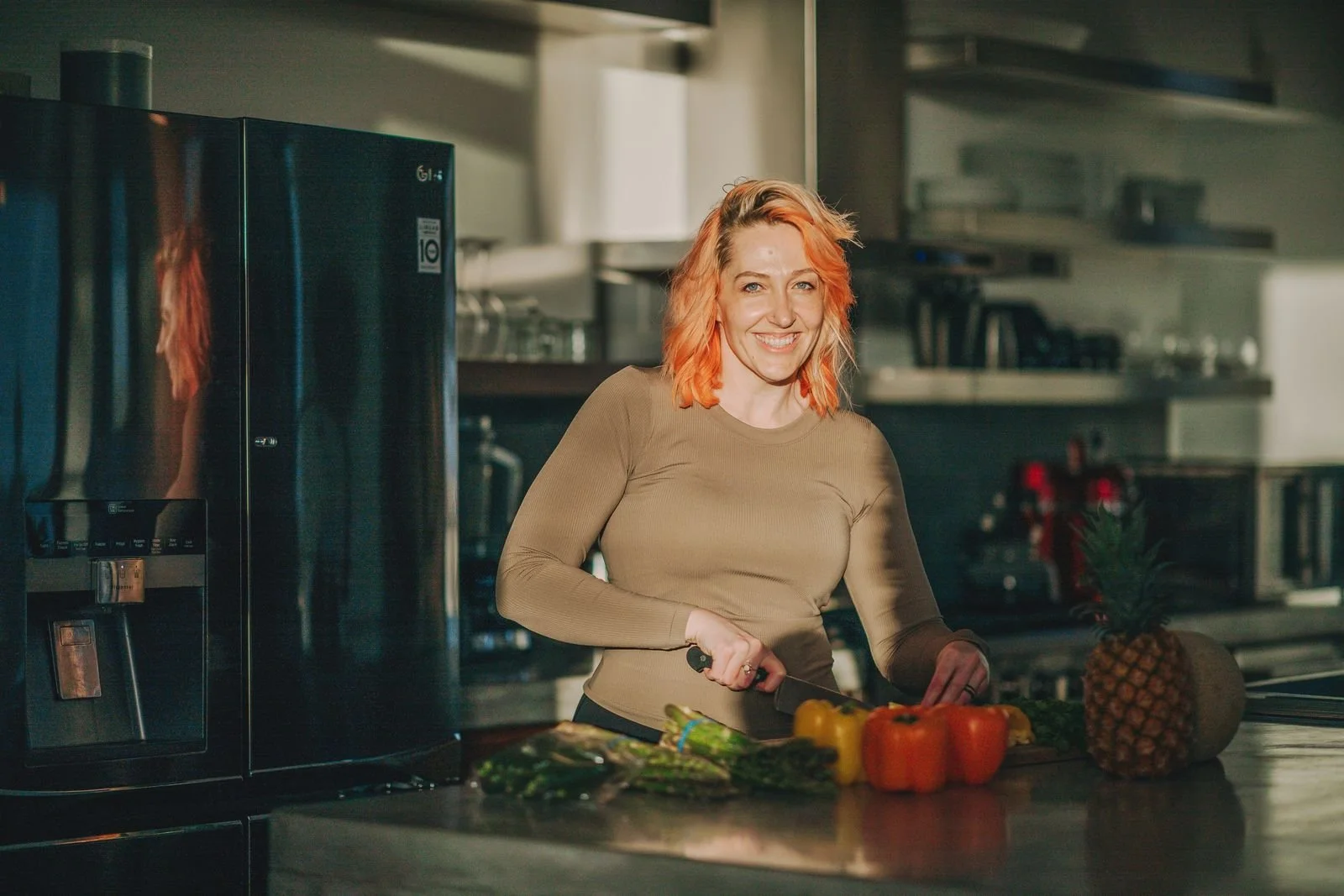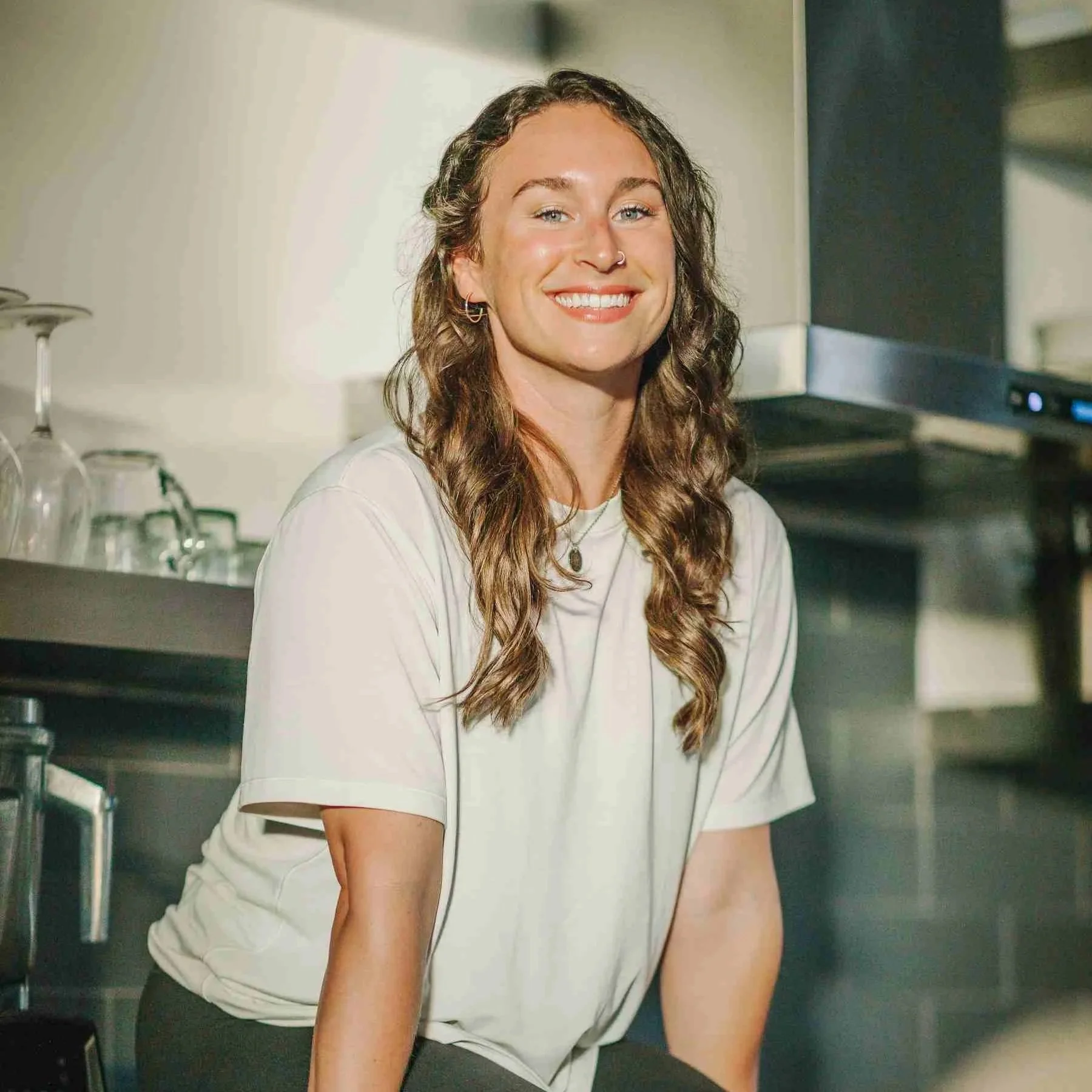What Is Food Noise? (And Why It’s Louder With ADHD)
If you live with ADHD or are neurodivergent, you might be familiar with the constant mental chatter that surrounds food. Whether it’s obsessing over what to eat, forgetting to eat entirely, or feeling overwhelmed by food choices, this experience has a name: food noise.
And for neurodivergent folks, especially those with ADHD, food noise isn’t just background static. It can feel like a 1998 Honda Accord sound system with a blown out bass of stress, cravings, guilt, and confusion.
What is food noise?
Food noise refers to the ongoing stream of thoughts regarding food: what you should eat, what you shouldn’t eat, whether you’re hungry, and how your choices reflect on you. It’s the mental loop that plays:
“I just ate, but I still want something…”
“Should I be hungry right now?”
“I’ll be ‘good’ tomorrow.”
“Why can’t I stop thinking about food?”
For many ADHDers, it’s constant thoughts about food that can feel IMPOSSIBLE to quiet. These thoughts can be intrusive, exhausting, and often disconnected from actual hunger or nutritional needs.
The Science And Misconceptions Behind Food Noise
Food noise isn’t just “thinking about food too much” or a lack of willpower. For people with ADHD, there’s real neuroscience at play.
Research shows that ADHD brains process dopamine (the brain chemical tied to reward and motivation) differently. This makes us more likely to seek quick hits of stimulation, food being one of the most accessible. On top of that, as discussed above, executive function challenges can make it harder to plan, prep, and follow through with meals, while interoception differences make hunger and fullness cues harder to notice. Put it all together, and you’ve got a perfect storm for food noise.
Unfortunately, there are also a lot of misconceptions regarding food noise:
It’s not just emotional eating. Emotional eating is soothing feelings with food, but food noise can happen even when emotions are steady.
It’s not an “obsession with food.” For many ADHDers, the thoughts are intrusive and distracting, not a sign of overeating or lack of control.
And it’s definitely not something you can fix with more discipline. Food noise is tied to brain wiring and environment, not character flaws.
Understanding the science and letting go of the myths is the first step to quieting the noise with compassion instead of shame.
Why Adhd Makes Food Noise Louder (And Harder To Manage)
ADHD impacts how we regulate attention, emotions, and impulses, all of which shape our relationship with food. ADHD makes food noise louder by combining executive dysfunction, dopamine-seeking behaviors, and difficulty noticing hunger cues. These factors can amplify food noise ADHD experiences and make eating feel far more chaotic or stressful.
Executive dysfunction
Meal planning, grocery shopping, and cooking require a lot of mental energy. When those tasks feel overwhelming, we might delay eating . . . only to end up ravenous and impulsive later. This cycle can lead to guilt, skipped meals, and reactive eating, which further fuels food noise and emotional distress.
Dopamine seeking behaviors
Food can offer a quick dopamine hit, especially sugary, salty, or crunchy snacks. If we’re bored, understimulated, or emotionally drained, our brains may fixate on food as a way to feel better fast. Over time, this can create a pattern where food becomes the primary coping tool for emotional regulation and stimulation.
Interoception challenges
ADHD can make it hard to notice internal cues like hunger and fullness. If you’re unsure whether you’re hungry, your brain might keep asking… just in case. This disconnect from body signals can lead to overthinking food decisions, second-guessing your needs, and relying on external cues or rules to guide eating.
Practical Strategies To Quiet Food Noise
Here are six ADHD-friendly strategies to help quiet food noise and build a more peaceful relationship with food:
1 - Mechanical eating: Eat at regular intervals (every 3–4 hours) to prevent over-hunger and reduce impulsive eating, especially if you struggle to notice hunger cues. This approach helps regulate energy levels and minimizes the mental spiral of “should I eat now or wait?”
2 - Go-to meal list: Create a list of low-effort, no-effort, and takeout options. When your executive function is low, having pre-decided meals removes the pressure of decision-making and helps you nourish yourself without stress. See our KLN favorite dinner ideas.
3 - Body doubling for meals: Eating with a friend, partner, child, coworker, or even on a virtual call can bring structure and reduce overwhelm. It also adds accountability and can make meals feel more enjoyable and less isolating, especially if you tend to skip meals when alone.
4 - Visual cues: Keep easy snacks visible, like string cheese, fruit, or protein bars. Visibility acts as a reminder to eat, which is especially helpful when ADHD makes it easy to forget or ignore internal hunger signals.
5 - Do a HALT check-in: Before reaching for food, ask: Am I Hungry, Angry/Anxious, Lonely, or Tired? This simple acronym helps you pause and identify whether food is meeting a physical need or an emotional one, giving you more clarity and choice.
6 - Create a dopamine menu: Sometimes food noise is really a craving for stimulation. A dopamine menu [a list of activities that bring joy or excitement] can help redirect your brain toward non-food sources of satisfaction when you're feeling understimulated.
My Personal Experience With Adhd And Food Noise
As someone with ADHD, I’ve been accustomed to having a lot of noise and conversation in my head. But it hits especially hard with food when I'm tired, stressed, or haven't had a dopamine hit for the day. I’ve had days where I forget to eat until 3pm, and others where I graze all day without feeling satisfied. Sometimes I’ll open the fridge five times in an hour, not because I’m hungry, but because I’m searching for something: comfort, stimulation, or just a break from the overwhelm. Other times, I’ll feel paralyzed by the thought of cooking, even when I know I need to eat. Learning to recognize food noise, and respond with compassion, has been a game-changer. The goal isn’t perfect eating, but building routines that support your brain and body while giving yourself grace to meet your needs.
Start Quieting The Food Noise
Food noise is a signal, not a personal failure. For ADHDers, it’s often a sign of unmet needs, overstimulation, undernourishment, or emotional overload.
You don’t have to figure it out alone. If you’re struggling with food noise, working with a nutrition coach who understands ADHD can help you build a calm, confident relationship with food. One that supports your brain, body, and life.
Food noise doesn’t have to run the show. If you’re ready for support that goes beyond tips and strategies, our coaches can help you build a calmer, more confident relationship with food. Learn more about our KLN team!



























